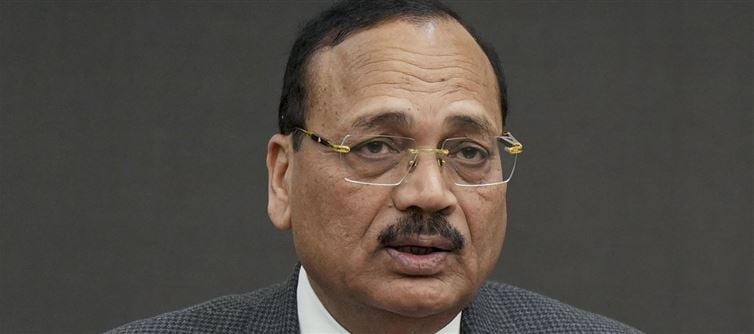
The Appointment Heard Across the Corridors of Power
President Droupadi Murmu has appointed Justice surya Kant as the next Chief Justice of india (CJI) — a man whose 15-month tenure will stretch from November 24, 2025, to February 9, 2027. The announcement came with the usual ritual of congratulatory headlines and a sprinkle of optimism about “upholding the Constitution.”
But this time, there’s a twist. While the ink was drying on the official notification, the internet was ablaze — not over his judgments, but over his jaw-dropping affidavit of assets.
The Golden Ledger: When Justice Meets Jewellery
In black and white, Justice surya Kant’s declaration reads less like a legal document and more like a property portfolio. The numbers are astounding — ₹8 crore in FDs, ₹4.23 crore in provident funds, and 1.1 kilograms of gold. Add to that flats, houses, agricultural lands, and joint family properties spread across Chandigarh, Gurugram, Hisar, and New Delhi.
For context: A sitting supreme court judge earns about ₹3.8 lakh per month in take-home pay. Yet, what stands tall isn’t just the legal legacy — it’s the economic empire that accompanies the robe.
Justice With Benefits: A Walk Through the Asset Map
Let’s take a humble tour:
A 5445 sq. ft. house in Sector 10, Chandigarh.
A GF + basement residence in Greater Kailash-I, Delhi.
A 250-yard home in DLF-II, Gurugram, and another in Sector 18-C, Chandigarh.
13.5 acres of farmland in Panchkula, plus ancestral land in Hisar.
And if that wasn’t enough, a 300-yard plot in Sushant Lok-1, Gurugram rounds off the real-estate resume.
It’s not just a list — it’s a map of privilege, signed, sealed, and disclosed.
Faith in Transparency, Or Transparency in Faith?
While Jemimah Rodrigues fights a moral and spiritual battle against religious politics, here we see a different kind of Biblical comeback — the resurrection of faith in the “impartial judiciary”, wrapped in layers of gold and property titles.
Because what’s more reassuring to the common citizen than knowing that our top judicial mind owns as much real estate as a mid-tier corporate magnate?
The Irony of Justice: On Paper vs. Off Record
“Just imagine the assets and cash without on the papers,” whispers the cynic — and rightly so. If what’s declared already reads like a corporate balance sheet, one shudders to think what lies unwritten.
This is india, after all — where transparency is both celebrated and choreographed. For every affidavit, there’s a backroom. For every declared plot, there’s a missing page.
The Price of Impartiality
The official line is noble: Justice surya Kant is expected to “uphold the high values of Bharat’s impartial judiciary.” And yet, in a system where the bench and the balance sheet often coexist uncomfortably, the optics write a different story.
Fifteen months may not sound long. But in India’s judicial timeline — where every verdict shapes generations, and every silence echoes in Parliament — this tenure could be monumental. Or messy.
A Nation Watches
Justice surya Kant now sits atop a collegium system under siege, an institution questioned for its opacity even as it decides who joins its ranks.
And now, with wealth and power both in his corner, the stage is set for a defining test — not of intellect, but of integrity.
Because when justice gleams too brightly, it risks blinding the very people it’s meant to protect.
Bottom Line (And gold Line)
The robes may be white, but the balance sheets glitter gold.
As india looks toward a new judicial dawn, one can’t help but wonder — will this be an era of conscience or consequence?
The gavel is heavy.
But so, it seems, is the gold that comes with it.




 click and follow Indiaherald WhatsApp channel
click and follow Indiaherald WhatsApp channel